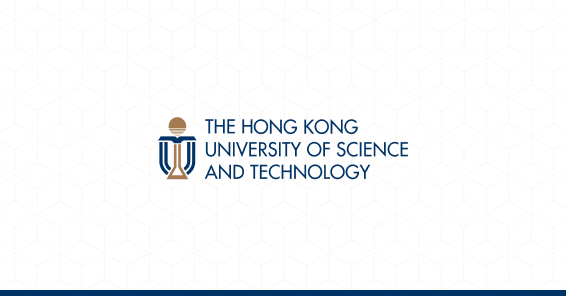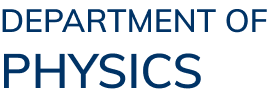2014-07-06

A group of researchers from the Hong Kong University of Science and Technology (HKUST) has become the member of a team of physicists from Hong Kong, who has now formally joined one of the most prestigious physics experiments in the world – a top particle physics experiment. Following a unanimous vote of approval today by its Collaboration Board, ATLAS has accepted the Hong Kong team as a member.
The ATLAS Collaboration operates the largest particle detectors in the world. It is located at the Large Hadron Collider (LHC), the world’s highest energy particle accelerator at CERN, Switzerland. In 2012, the ATLAS team – along with the CMS Collaboration – co-discovered the Higgs boson, or the so-called ‘God Particle’. The gigantic but sensitive and precise ATLAS detector, together with the unprecedentedly high collision energy and luminosity of the LHC, makes it possible to search for fundamentally new physics, such as Higgs properties, dark matters, hidden extra dimensions, and supersymmetry – a proposed symmetry among elementary particles. The LHC is currently undergoing an upgrade, targeting a substantial increase in beam energy and intensity by 2015. It is widely expected that the discovery of the Higgs boson is only the beginning of an era of new breakthroughs in fundamental physics. All these exciting opportunities are now opened up to scientists and students from Hong Kong.
The Hong Kong team is led by Prof Ming-chung Chu of The Chinese University of Hong Kong (CUHK), with members from HKUST, CUHK and The University of Hong Kong (HKU). Other than Prof Chu, the Hong Kong team members include Assistant Professor Luis Flores Castillo (CUHK), Research Assistant Professor Kirill Prokofiev (HKUST), Assistant Professor Yanjun Tu (HKU), four graduate students and two research assistants. Four undergraduate students from the three institutes are also working at CERN this summer. More graduate students and postdoctoral fellows will be recruited to the team shortly.
Prof Michael Altman, Head of Department of Physics of HKUST, said, “Acceptance into the ATLAS team at LHC is a milestone achievement for Hong Kong society that will give our young scientists and students new opportunities to join in making some of the most profound scientific discoveries of our time. It is particularly rewarding to take this great adventure with respected colleagues at other universities in Hong Kong”.
Prof Henry Tye, Director of HKUST Jockey Club Institute for Advanced Study, is also glad that Hong Kong will participate in this forefront international experiment. He said, “It is particularly great to see that the three universities joint force to make this first step of a long and exciting journey into the unknown.”
The Hong Kong team has recently secured a grant of HK $\$$8.66 million from the Research Grants Council to support its research activities at ATLAS, which include both hardware and software works on the muon detecting system and analysis of data to look for new physics.
In addition, the Hong Kong team has already spent one year working on simulation and testing of hardware, in collaboration with the ATLAS groups at SLAC National Accelerator Laboratory and Lawrence Berkeley National Laboratory in the US. Their previous work has already produced two internal ATLAS technical papers and one open presentation to other ATLAS members.
The ATLAS science program is full of discovery potential, and they will be working together with leading experts from 177 institutes in 38 countries.
The Hong Kong team operates under the umbrella of the Joint Consortium for Fundamental Physics which was formed in 2013 by physicists in the three universities, alongside the elementary particle physics theory and astrophysics and cosmology groups. A theory project led by Prof Gary Shiu of HKUST, complementary to the experimental one, also won support of HK $\$$8.6 million from the Research Grants Council.
The ATLAS Collaboration operates the largest particle detectors in the world. It is located at the Large Hadron Collider (LHC), the world’s highest energy particle accelerator at CERN, Switzerland. In 2012, the ATLAS team – along with the CMS Collaboration – co-discovered the Higgs boson, or the so-called ‘God Particle’. The gigantic but sensitive and precise ATLAS detector, together with the unprecedentedly high collision energy and luminosity of the LHC, makes it possible to search for fundamentally new physics, such as Higgs properties, dark matters, hidden extra dimensions, and supersymmetry – a proposed symmetry among elementary particles. The LHC is currently undergoing an upgrade, targeting a substantial increase in beam energy and intensity by 2015. It is widely expected that the discovery of the Higgs boson is only the beginning of an era of new breakthroughs in fundamental physics. All these exciting opportunities are now opened up to scientists and students from Hong Kong.
The Hong Kong team is led by Prof Ming-chung Chu of The Chinese University of Hong Kong (CUHK), with members from HKUST, CUHK and The University of Hong Kong (HKU). Other than Prof Chu, the Hong Kong team members include Assistant Professor Luis Flores Castillo (CUHK), Research Assistant Professor Kirill Prokofiev (HKUST), Assistant Professor Yanjun Tu (HKU), four graduate students and two research assistants. Four undergraduate students from the three institutes are also working at CERN this summer. More graduate students and postdoctoral fellows will be recruited to the team shortly.
Prof Michael Altman, Head of Department of Physics of HKUST, said, “Acceptance into the ATLAS team at LHC is a milestone achievement for Hong Kong society that will give our young scientists and students new opportunities to join in making some of the most profound scientific discoveries of our time. It is particularly rewarding to take this great adventure with respected colleagues at other universities in Hong Kong”.
Prof Henry Tye, Director of HKUST Jockey Club Institute for Advanced Study, is also glad that Hong Kong will participate in this forefront international experiment. He said, “It is particularly great to see that the three universities joint force to make this first step of a long and exciting journey into the unknown.”
The Hong Kong team has recently secured a grant of HK $\$$8.66 million from the Research Grants Council to support its research activities at ATLAS, which include both hardware and software works on the muon detecting system and analysis of data to look for new physics.
In addition, the Hong Kong team has already spent one year working on simulation and testing of hardware, in collaboration with the ATLAS groups at SLAC National Accelerator Laboratory and Lawrence Berkeley National Laboratory in the US. Their previous work has already produced two internal ATLAS technical papers and one open presentation to other ATLAS members.
The ATLAS science program is full of discovery potential, and they will be working together with leading experts from 177 institutes in 38 countries.
The Hong Kong team operates under the umbrella of the Joint Consortium for Fundamental Physics which was formed in 2013 by physicists in the three universities, alongside the elementary particle physics theory and astrophysics and cosmology groups. A theory project led by Prof Gary Shiu of HKUST, complementary to the experimental one, also won support of HK $\$$8.6 million from the Research Grants Council.
